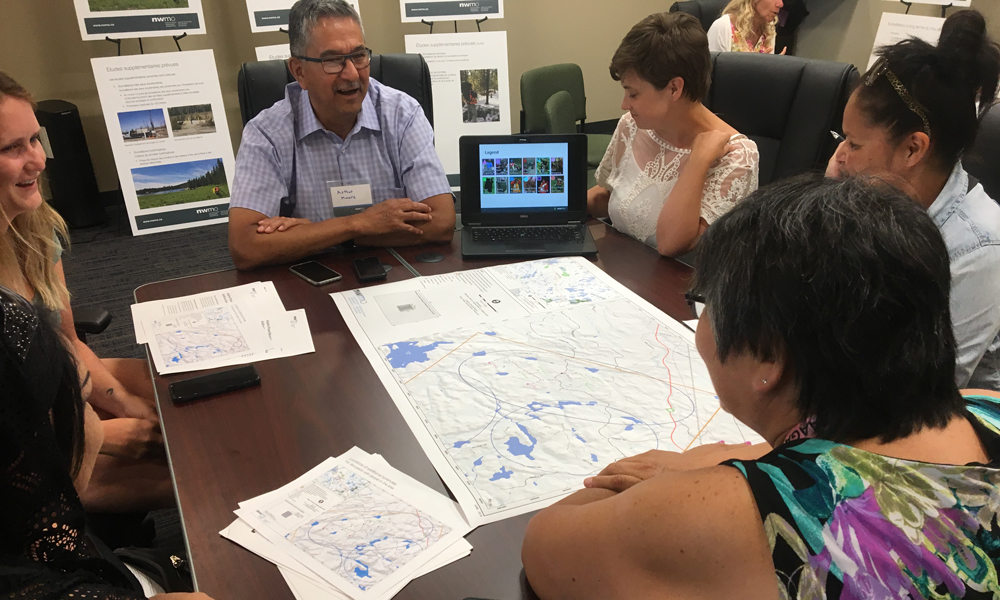Family and friends emerged as a key source of information about Canada’s plan for the safe, long-term management of used nuclear fuel, according to a survey commissioned by the Nuclear Waste Management Organization (NWMO) in partnership with some of the siting communities.
The survey, which took place between September and October 2019, was conducted in the municipalities of Hornepayne, Huron-Kinloss, Ignace, Manitouwadge, and South Bruce. It sought to understand how people currently access information about Canada’s plan and communications preferences going forward.
The survey found a high degree of awareness about Canada’s plan, with more than 90 per cent of respondents familiar with the NWMO; interpersonal networks played an important role in sharing information about Canada’s plan and creating this awareness.
“Conversations are an important part of how we engage people about Canada’s plan, and the survey findings show us the importance of these conversations beyond open houses and community offices to social networks,” said Charlene Easton, Manager of Community and Public Engagement at the NWMO. “We thank the communities for participating in the survey, and we will be using the responses to develop plans to shape our engagement and outreach as we move forward.”
Key findings of the survey include:
- Awareness of the NWMO: Between 92 and 98 per cent of survey respondents had heard of the NWMO prior to receiving the survey.
- Familiarity with community involvement: Between 66 and 91 per cent were very or somewhat familiar with their community’s involvement in the site selection process.
- Awareness of willingness requirement: Between 80 and 94 per cent of survey respondents were aware the project will only be implemented with the involvement of informed and willing hosts.
- Sources of information on the project: Survey respondents said they receive information about the project from family, friends, neighbours, newsletters, newspapers, meetings, websites, and social media.
- Preferred method of communication about the project: Survey respondents preferred to receive information about the project through brochures, newsletters, meetings, and authoritative websites (such as township or the NWMO).
“We are pleased to get direction from community members on the questions they would like to see addressed and the way they would like to receive information as we continue to explore the project. This will help direct our future work,” said Robert Buckle, Mayor of South Bruce.
The NWMO continues to welcome all comments on Canada’s plan.
Technical site investigations and social studies are underway in two areas – Ignace in northern Ontario and South Bruce in southern Ontario. The NWMO expects to identify a single, preferred location in an area with informed and willing hosts by 2023. The project will only proceed with the interested municipalities and Indigenous communities working in partnership to implement it.

